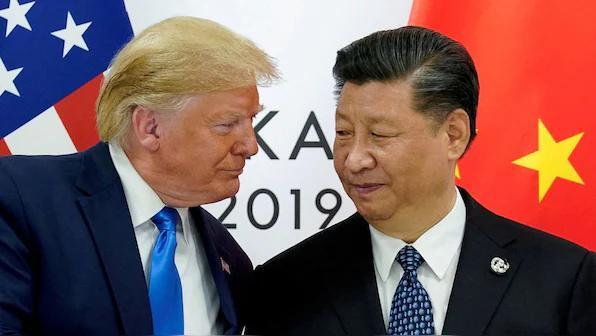
China Refuses to Join Denuclearisation Talks with US & Russia
In a recent development that has sent shockwaves across the global diplomatic community, China has categorically refused to join trilateral denuclearisation talks with the United States and Russia. This move comes as a response to President Donald Trump’s call to include Beijing in future negotiations aimed at reducing the threat posed by nuclear weapons.
According to reports, Chinese Foreign Ministry Spokesperson Guo Jiakun stated that the expectation of China’s participation in such talks was “neither reasonable nor realistic”. This rejection is a significant blow to the efforts of the United States and Russia to engage China in a comprehensive dialogue on denuclearisation.
The Chinese stance is rooted in the country’s assertion that it does not possess the same level of nuclear capabilities as the United States and Russia. In essence, Beijing believes that it would be unfair to expect China to participate in talks that are dominated by the two nuclear superpowers. This assertion is not unfounded, as China’s nuclear arsenal is significantly smaller compared to that of the United States and Russia.
China’s decision to opt out of the denuclearisation talks is a testament to its long-standing stance on the matter. Beijing has consistently maintained that it is not a party to the nuclear arms race and that its nuclear capabilities are purely for defensive purposes. This stance is reflected in China’s “no-first-use” policy, which dictates that the country will only use nuclear weapons in response to a nuclear attack.
The refusal of China to participate in the denuclearisation talks has significant implications for the global nuclear landscape. The absence of China from the dialogue will likely lead to a lack of meaningful engagement on the issue, as Beijing’s participation was seen as crucial to any potential breakthrough.
The United States and Russia have been pushing for China’s inclusion in the talks, citing the country’s growing nuclear capabilities and its increasing role in the global nuclear landscape. However, China’s reluctance to participate is rooted in its concerns about being pushed into a corner and forced to compromise on its nuclear posture.
The lack of Chinese participation in the denuclearisation talks will also impact the prospects of a potential nuclear arms reduction treaty. Such a treaty has been a long-standing goal of the United States and Russia, with both countries seeking to reduce their nuclear arsenals in a bid to reduce the threat posed by nuclear weapons.
In recent years, there have been signs of a thaw in the relationship between the United States and China, with both countries engaging in high-level diplomatic talks on a range of issues. However, the refusal of China to participate in the denuclearisation talks is a significant setback for these efforts.
The implications of China’s decision to opt out of the denuclearisation talks are far-reaching. The absence of China from the dialogue will likely lead to a lack of progress on the issue, as Beijing’s participation was seen as crucial to any potential breakthrough.
In conclusion, China’s refusal to join trilateral denuclearisation talks with the United States and Russia is a significant development that has sent shockwaves across the global diplomatic community. The Chinese stance is rooted in its assertion that it does not possess the same level of nuclear capabilities as the United States and Russia, and its refusal to participate in talks that are dominated by the two nuclear superpowers.
As the world grapples with the threat posed by nuclear weapons, the need for meaningful engagement on the issue is more pressing than ever. The refusal of China to participate in the denuclearisation talks is a significant setback for these efforts, and it remains to be seen how the international community will respond to this development.
Source:



